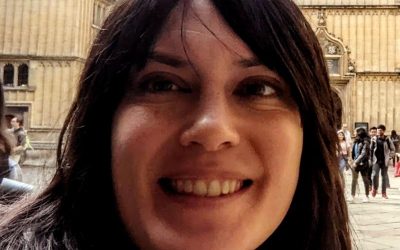
What is the truth? Well, as pointed out in the second post of this series, the truth is relative to our understanding. All very philosophical, but true nonetheless. Or is it … ?
Once we have realised that the truth may be different depending on whose perspective we are learning from, it can (temporarily) become harder to manage challenging behaviour. We are conditioned to understand right and wrong as binary ideas. We are also conditioned, in the UK, to seek punitive justice for wrongdoers.
I think the idea of community is a really important part of how we manage behaviour and support young people with their challenges in the classroom. It is easy to forget, as a tutor, that we are part of a broad network of people that form a community around the child. They have other tutors and education professionals, they have at least one parent or carer, they have their peers, their wider family.
As a tutor, we are often working outside of the systems that support teachers in managing behaviour. By that, I mean that we usually can’t fall back on a detention or other form of punishment when a student is misbehaving. We have to rely on something else. “What else?” I hear you cry.
Well …
We must understand that we are a community, not a criminal justice system, and our actions need to be about whatever we can do at this time, with the resources we have in the moment, to make this situation a little better.*
So, what can you do right now? What do you already have available to you? What does ‘a little better’ look like?
_______________________
*Chapter 6: Building a Culture of Consent. Easton, D. and Hardy, J.W. (2017). The Ethical Slut : a practical guide to polyamory, open relationships and other adventures. 3rd ed. California: Ten Speed Press.
Recommended Posts
Getting Paid as a Tutor: How I Finally Got Paid (and What It Taught Me About My Worth)
“Payment made.” This cold, brusque message from a former client came as a shock - not because I hadn’t been chasing that result, but because it made me feel two things simultaneously: a huge sense of relief, and also, unexpectedly, a really heavy sadness. An...
The 3 Keys to Effective Tutoring: Relationship, Responsiveness and Reflectiveness
Discover the 3 keys to effective tutoring — relationship, responsiveness and reflectiveness. Learn practical strategies from experienced tutors and explore how qualifications, CPD and community help professional tutors succeed. Join Qualified Tutor and take your tutoring career to the next level.
Why Being Part of a Tutor Community Matters: How Connecting with Fellow Tutors Boosts Success, Confidence and Wellbeing
Tutoring can be isolating, especially for online tutors balancing neurodiversity, health or caring responsibilities. Discover why being part of a tutor community matters, how they boost confidence, wellbeing and referrals, and how Qualified Tutor helps make tutoring your powerful Plan A.




0 Comments